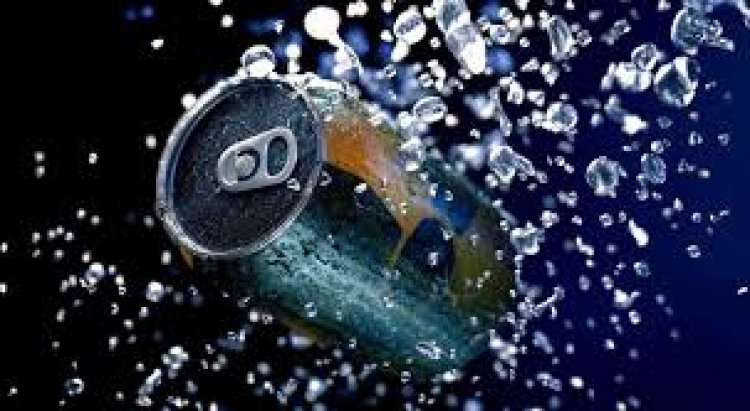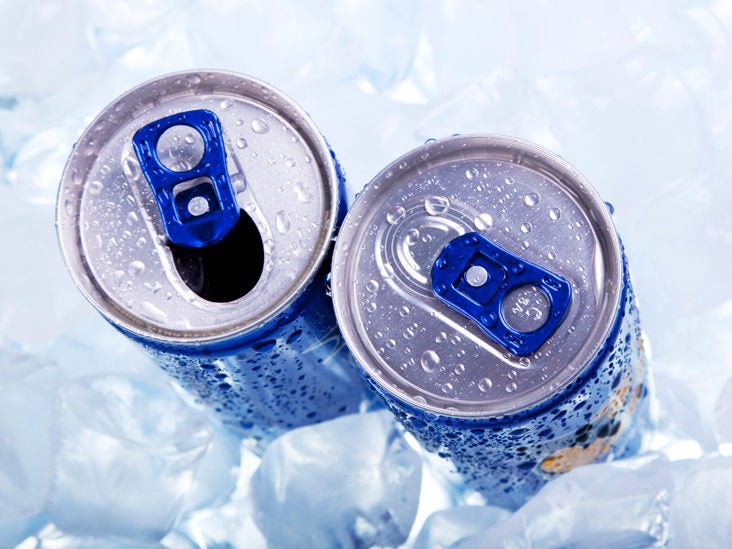Energy drinks health benefits and nutrition facts: Are they safe?
Energy drinks are ubiquitous consumables that provide instantaneous stimulation. Here are defining Energy drinks health benefits and nutrition facts: Are they safe?

Energy drinks health benefits and nutrition facts
Energy drinks are ubiquitous consumables that provide instantaneous stimulation.
In the past two decades, the consumption of energy beverages has increased, particularly among adolescents and young adults. This has prompted the medical community to investigate the numerous health effects of energy beverages.
Topics: Energy drinks health benefits and nutrition facts

What are energy drinks?
Energy drinks are beverages with a high concentration of stimulants, such as caffeine and sugar. They are intended to enhance mental and physical performance in the short term. These beverages typically contain vitamin B6 and B12 in addition to taurine.
The caffeine in these beverages (equivalent to that in a cup of coffee) acts by inhibiting the sleep-inducing effects of adenosine. It triggers the release of adrenaline by tricking the body into believing that an emergency exists. Consuming energy beverages can quicken the heartbeat and dilate the pupils. A sudden increase in blood sugar gives us the impression that we have a great deal of vitality.
Energy drink nutrition
250 ml of a popular energy drink contains the following nutrients:
| Nutrients |
Measure |
| Calories |
110 |
| Total fat |
0% |
| Sodium |
105 mg (4%) |
| Total carbs |
28 gm |
| Sugars |
27 gm |
| Protein |
Less than 1 gm |
| Niacin |
100% |
| Vitamin B6 |
250% |
| Vitamin B12 |
80% |
| Pantothenic acid |
50% |
| Caffeine |
80 mg |
Health facts about energy drinks
Frequently, B vitamins are added to energy beverages to facilitate the conversion of food into usable immediate energy. In addition, they include amino acid derivatives such as taurine and L-carnitine, as well as herbal extracts such as ginseng and guarana.
These energy beverages contain a high concentration of caffeine, which enhances memory, alertness, and mood. They enhance aerobic capacity, aerobic performance, and upper-muscle endurance.
Several studies have demonstrated that energy beverages enhance cognition and mood in sleep-deprived individuals.
These beverages may provide an immediate boost, but they are not nutritious foods. However, due to the added supplements, there may be some health benefits, including:
- Increased energy
- Wakefulness
- Improved performance
- Improved brain function
- Improved mood
- More concentration
- Reduced mental fatigue
On the other hand, they are loaded with caffeine, sugar, dyes, and other chemical compounds. Regular consumption of energy beverages may result in poor sleep quality and a decrease in the subsequent day's energy levels. The cycle of consuming these beverages may also result in chronic fatigue due to poor sleep, cardiovascular issues, neurological issues, gastrointestinal disturbances, renal issues, and dental effects. The following are several negative effects of excessive energy drink consumption:
- Increased heart rate
- Increased blood pressure
- Reduction in endothelial function
- Increased platelet activity and platelet aggregation could lead to stroke
- Increased risk of arterial dilation
- Increased risk of aneurysm
- Increased risk of rupture of large arteries
- Could cause insomnia and decreased sleep quality
- Could lead to gastrointestinal problems
- Could cause epileptic seizures
- Can cause hallucinations
- Could lead to dehydration
Hope you have liked the above Topics Energy drinks health benefits and nutrition facts: Are they safe?
Also read: What To Do When Your Child Won’t Drink Milk












